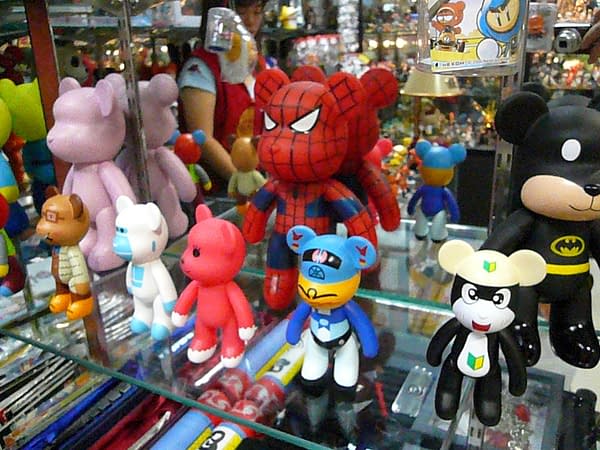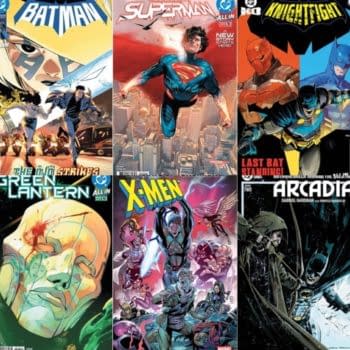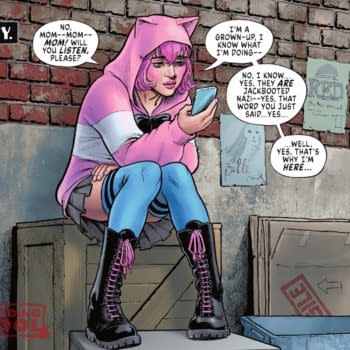Posted in: Collectibles, Marvel Legends | Tagged: china, chris fenton, iron man 3, marvel
When Black Market Marvel Bootleggers Disappeared in China
Chris Fenton, former president of the China-based DMG Entertainment Motion Picture Group, has written a book, Feeding The Dragon, looking at his career, getting American movies into Chinese markets, notably Looper and Iron Man 3. I recently read it, can confirm it is quite the page-turner, and that there are so many nuggets to share. You can follow along with a few of the stories I'm sharing with this link. Now, obviously this is Chris Fenton's take on what happened and already I am getting pushback from some other folk. But I definitely think it's a version worth representing.

He talks about how working with a Chinese production partner had immediate effect from the government once a public deal was announced.
Marvel's creative, business, and legal departments were all finally aligned. The combined Marvel force coerced Disney to play along. We were off and running, and that was all that mattered. A month later, we held a deal-signing ceremony for Iron Man 3 in Beijing. For the Chinese, such ceremonies were extremely important. Not only did they allow all the parties to get together for a symbolic signing of a contract, but they also allowed for important bonding over large banquets and late-night karaoke sessions—sessions I got extremely good at over time by learning to sing some very popular Chinese songs in Mandarin. Marvel sent over one of their top executives, Rob Steffens, to sign on their behalf along with several reluctant executives from Disney's Beijing office. Included in that group was Stanley Cheung, Disney's GM of China, who touted the deal as "a testimony to the importance of China to Disney and the local China film industry's [meaning DMG] capability to deliver a blockbuster title." China Film Group chairman Han Sanping also attended. That was both significant and telling. He gave the Party line, touting this amazing co-production collaboration in the cultural area of film, in rough translation, as "This international movie, created by US-China partnership, has a strong agenda of focusing on the full cooperation and support of the Chinese government."
He also talks about how this was initiallv represented in the West.
That same day, CNBC whittled down the news as "Disney Making 'Iron Man 3' with Chinese Partner." The newsworthy headline was pasted on CNBC's side-screen throughout the day.
And the immediate impact he saw on the streets of Beijing.
Solidifying my understanding of just how big this bilateral collaboration was, at least in the eyes of the Chinese government, I discovered my favorite section of Beijing's Silk Market no longer sold strange and unusual pirated Marvel merchandise anymore. The blackmarket Marvel store in Beijing's U-Town mall mysteriously vanished as well, and my favorite black-market DVD store in the Sanlitun alley, behind Beijing's Opposite House Hotel, had stopped selling Marvel titles too. Bottom line, if the Chinese public thinks the government is excited about a collaboration with the West, you better believe you won't see anyone trying to monetize that illegal product or service moving forward. The newly supported business becomes "made," and only the parties directly involved in making it, both from the West and China itself, are then allowed to capitalize on it. No one else can from that point forward can utilize its name or likeness.

















